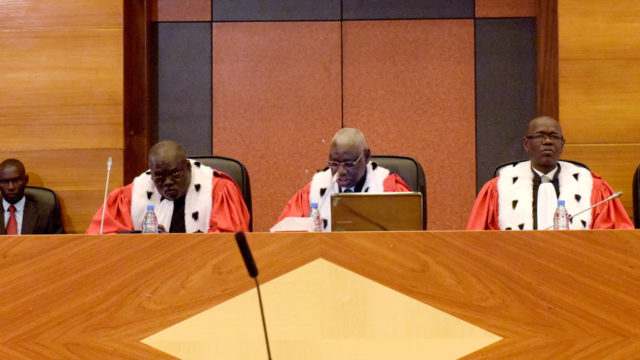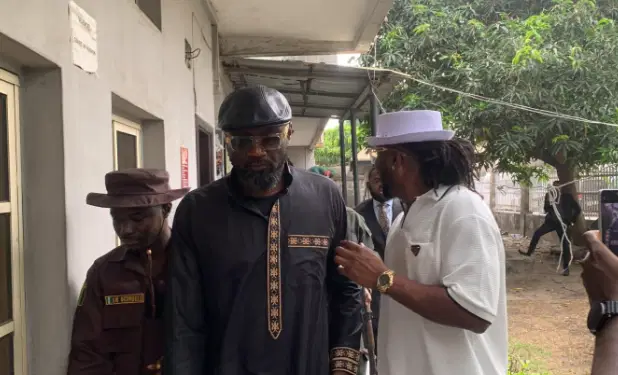T he Life sentence against Chad’s former president Hissene Habre for war crimes has been upheld by a special court in Dakar on Thursday, but the Court acquitted him of rape.
he Life sentence against Chad’s former president Hissene Habre for war crimes has been upheld by a special court in Dakar on Thursday, but the Court acquitted him of rape.
The Extraordinary African Chambers, a body created by Senegal and the African Union (AU), sentenced Habre last May to life behind bars, an unprecedented ruling seen as a blow to the impunity long enjoyed by repressive rulers on the continent.
The president of Thursday’s appeal court Wafi Ougadeye said he confirmed the life sentence but quashed the rape ruling. The decision is final.
Habre, a former desert warrior, refused to recognise the court’s authority, so the appeal was mounted on his behalf in January by his court-appointed lawyers. He was absent from proceedings.
“No proof of his guilt has been demonstrated,” said Mbaye Sene, one of his court lawyers, though Reed Brody, a US-based expert who has worked closely with Habre’s victims to secure the conviction, has described his crimes as among the best-documented in African history.
The court further upheld the right of victims to seek compensation for abuses committed during his 1982-1990 rule, as well as to their relatives, and set the fund for reparations at 82 billion francs CFA (125 million euros; $136 million).
Delphine Djiraibe, representing the civil plaintiffs, said 7,396 victims stood to benefit, but experts warned that Habre’s assets remained unaccounted for.
“The African Union must ensure that the mandated Trust Fund implements the reparation order of the court effectively and fairly,” said Amnesty International’s Erica Bussey.
“Efforts should also be made to trace, freeze and seize Habre’s assets for reparation,” she added.
The final stage in Habre’s conviction has brought closure for relatives of up to 40,000 people killed and many more kidnapped, raped or tortured during his time as president.
Brody, the US lawyer, said the ruling was “a powerful message that the days when tyrants could brutalise their people, pillage their treasury and escape abroad to a life of luxury are coming to an end.”
“Today will go down in history as the day that a band of unrelenting survivors finally prevailed over their dictator,” he added in a statement.
Habre remains in custody and will serve his sentence in Senegal or in another AU country.
He fled to Senegal after his 1990 ouster by Chad’s current President Idriss Deby, and for more than 20 years lived freely in an upmarket Dakar suburb with his wife and children.
The trial set a global precedent as the first time a country had prosecuted the former leader of another nation for rights abuses, and was seen as a landmark example of African rights abuses being tried on the continent.
Souleymane Guengueng, who founded a Habre victims’ association after suffering in one of the ex-leader’s notorious prisons, said in a statement he was “finally at peace”.
“I hope that all the dictators in Africa take notice – no one is above the law!” he said.





